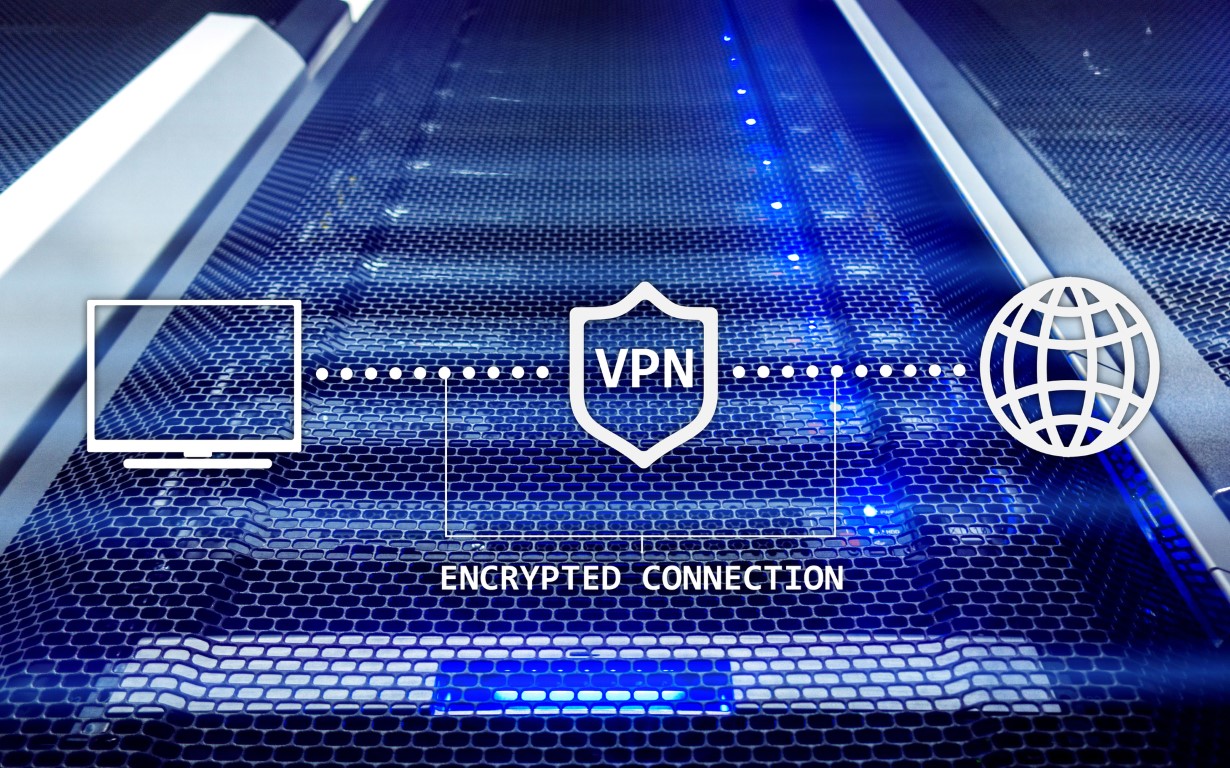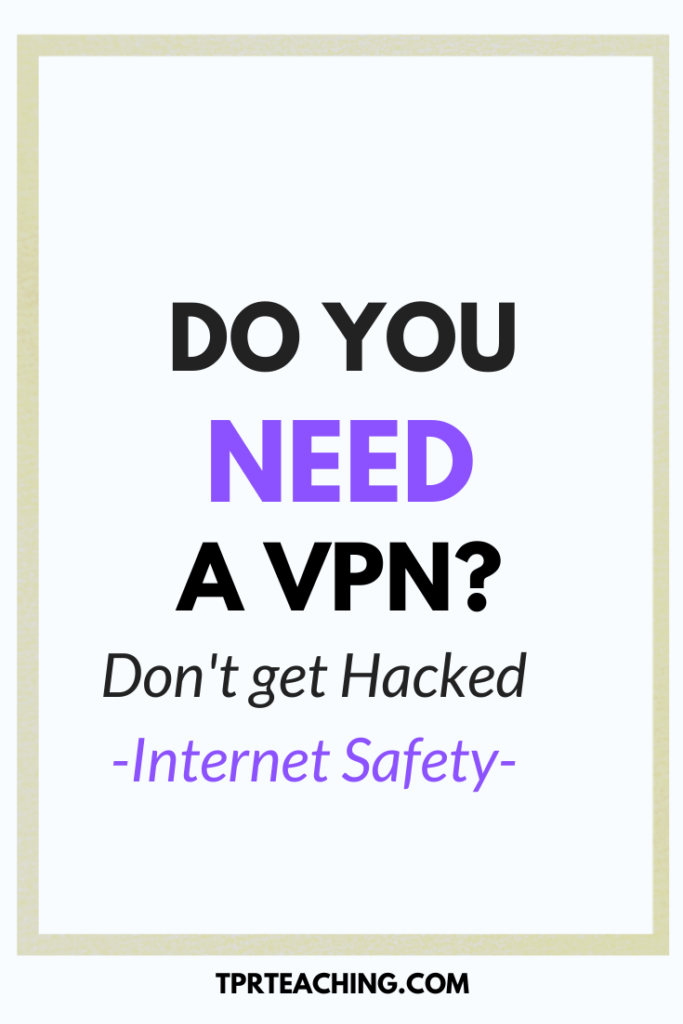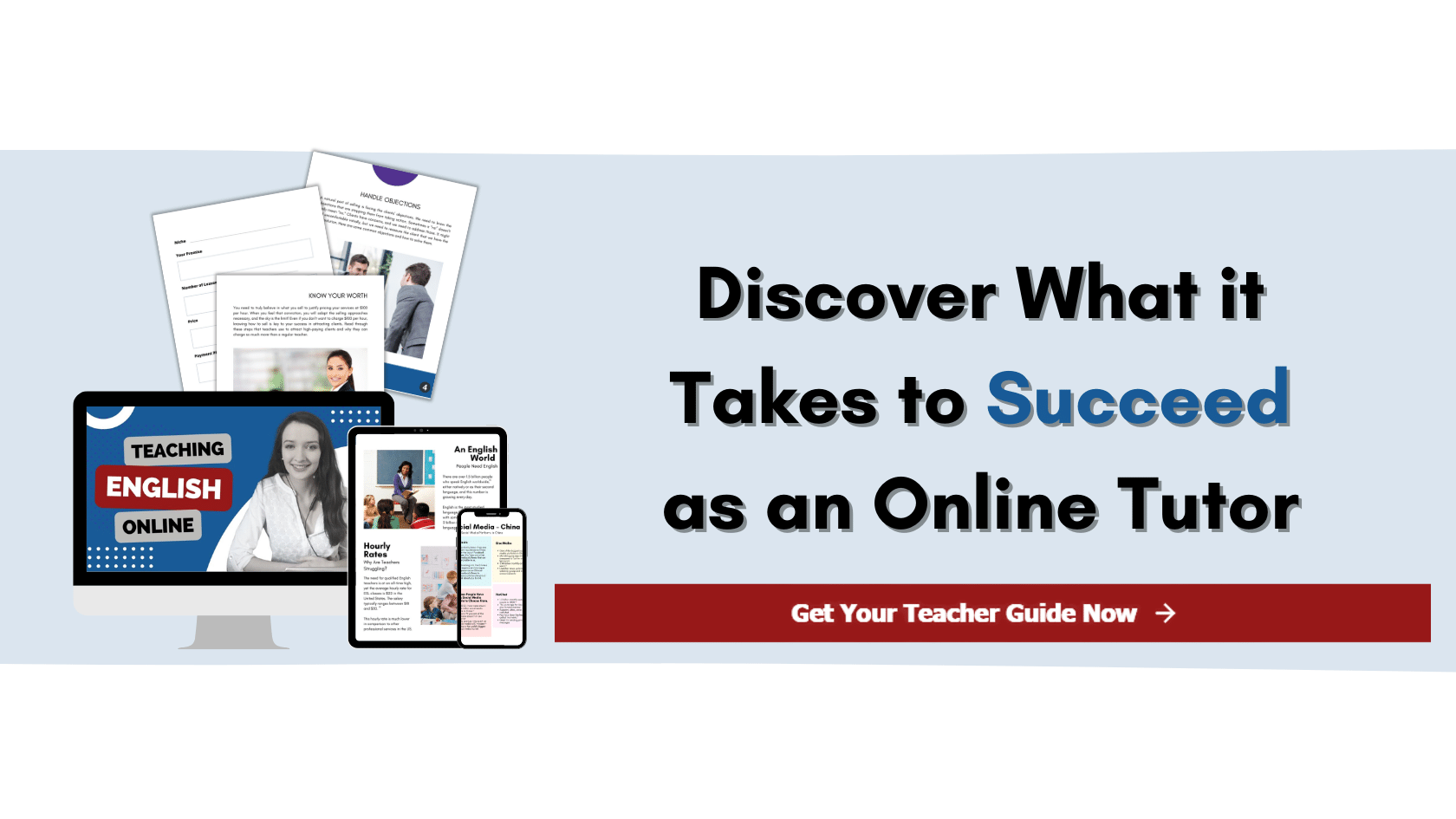Are you concerned about how companies use your data? Or the government, for that matter?
Privacy continues to be an important topic of discussion in today’s digital economy. As data breaches and security threats prevail, are we really doing enough to protect ourselves online?
Is it possible to remain safe and secure surfing the internet without worrying about someone reading your passwords and monitoring your internet activity? Let’s find out!
What is a VPN?
A VPN, or a virtual private network, allows you to stay secure on the internet. VPNs encrypt your data and act as a privacy measure to shield your identity. When you use a VPN, you are connected to a private server that accesses the internet on your behalf. VPNs mask your IP address, which hides your location and device.
A VPN is NOT an internet connection. It’s just a secure way to access the internet.
Express VPN is a high-powered VPN built for speed. Connect on any device and enjoy the internet without worrying about security and privacy issues. Try it here.
Do I need a VPN?
You might not need a VPN if you surf websites using your home Wi-Fi. However, it is recommended to change the default WiFi password on your router as hackers may be able to find out the router and default password.
If you use public WiFi, you should certainly consider a VPN. Using your personal details such as name, password, address, and postcode is a very risky business if using public WiFi.
Are you concerned about how companies use your data? Or the government, for that matter? Privacy continues to be an imp© Provided by TPR Teaching
Think about if you were a homeowner. You wouldn’t leave the door open for people to come in and invade your private space, now would you?
As the internet becomes a more indispensable part of people’s lives, hackers find innovative ways to exploit people’s personal and business information, which could lead to serious financial losses. As a result, many people are now opting for a VPN.
It’s estimated that out of the 5 billion internet users worldwide, about 1.2 billion are using a VPN as of 2023.
Advantages of a VPN
Why use a VPN? There are certainly many factors to consider when making our decision. We discuss the advantages and implications of using a VPN below.
Access Entertaining Content
The VPN can trick the internet into thinking you are in a different location. This is ideal when traveling and you want to access news and entertainment.
For example, you may be currently located in Vietnam, but you want to trick your device into believing you are actually in London. You can do this by using a VPN.
A VPN may be a good idea if you want to use services such as Netflix, Hulu, or Amazon Prime. You will be able to access shows not even available in that location.
Access Social Media and Other Restricted Sites
The same applies to social media and restricted websites. Some countries restrict or censor certain websites or social media platforms.
Using a VPN and downloading it before you go to the location in question means you can easily catch up with the latest and talk to your friends.
Access Goods and Services
Goods and services may be priced differently or limited by your geographic location.
These pricing tactics may seem unfair, as businesses, such as airlines, segment their customers. They may also increase the price if they see you search for the flight several times. Who wants to pay a high-end price for a flight? You can actually avoid price discrimination and save money by using a VPN.
Please note that this may not always work 100% of the time, as cookies may be on your browser. This way, the websites remember you. Be also sure to clear your cache while using the VPN.
The cache files are junk files and temporary data stored on your browser from websites. You can safely clear your cache without worrying about losing important information.
Easy to Use
You don’t have to be tech-savvy to use a VPN.
VPN providers walk you through the setup. They make it easy and accessible to all their users so that people can use their internet securely.
How to Use a VPN?
- Download the VPN and install it. You can use it on many devices.
- Connect to the internet and start up your VPN.
- Choose a location server and enjoy it!
- When choosing the most suitable VPN, ensure it has platform compatibility, high speed, no hidden fees, and is available in many countries.
When choosing the most suitable VPN, ensure it has platform compatibility, high speed, no hidden fees, and is available in many countries.
Used by Individuals or Businesses
Regardless of the field that you work in, everyone can use a VPN. A VPN is a good safety net whether you are an employee who wants to access blocked sites at work, a traveler who wants to connect to a hotel WiFi, or a businessman trying to encrypt your internet traffic.
Connect to Multiple Devices
You can connect many devices to your VPN, including but not limited to your tablet, your phone, laptop, or computer.
You may have to set up a VPN connection on your router for devices that don’t support VPN applications, such as some gaming consoles. You can then access the web through the router.
Make sure to choose a VPN company that provides ongoing customer support to help you set up your VPN at home for multiple users.
Protection
It keeps your data secure. Many people don’t understand how easy it is to spy on someone through a public Wi-Fi network.
A VPN provides an extra layer of protection for privacy. If you use public Wi-Fi at a coffee shop or hotel, consider using a VPN.
For example, if you were at the airport and wanted to perform a transaction with your bank account, you would have to enter your password and details.
Hackers can easily spy on your device because you are not using a VPN. You could potentially lose thousands of dollars.
Keep your Activities Private
A priority for VPNs is not to allow your activities to be tracked. This provides privacy when surfing online.
Peer-to-Peer Networking or Torrenting
If you are using a torrent site, you will definitely need a VPN. ISPs do not like torrenting, and you may not even be able to access the torrenting site without a VPN.
Disadvantages of a VPN
Having discussed the advantages of the VPN, we will now look at some known issues people have. Here are the disadvantages of using a VPN:
Internet speed
VPNs can slow down the internet speed. There is an extra path in the process to encrypt and decrypt your data, so this can reduce your speed.
Encrypting and rerouting your traffic reduces the speed of your internet. However, it may not be very noticeable if you have a high CPU and good bandwidth.
It also depends on your VPN, as some slow down the internet speed more than others.
Free VPNs are particularly slow. Make sure that whatever VPN has little impact on speed.
Connectivity Issues
Sometimes users experience a drop in connectivity. When this happens, your real IP address can be exposed, and you will have to reconnect with the VPN.
If you don’t want to lose your anonymity, you will need a VPN with a kill switch feature to disconnect your internet immediately when the service is lost.
Personal VPN
Free VPNs are unreliable and not suitable for sensitive data. They can sometimes sell your information or display lots of ads, basically doing the opposite of what you intended.
A paid VPN is necessary for proper encryption. The paid VPNs also have a faster speed. You can perform a speed test to check how fast the VPN is.
Make sure to choose a VPN that doesn’t keep logs of your online activities or IP addresses.
Don’t Trust Public WiFi
I wouldn’t risk your private data and passwords while traveling and relying on public WiFi. Hiding crucial information such as your credit card or company details will avoid a costly hassle in the long run.
If you are using private WiFi, make sure to change the default password on the router to prevent hacks. Take protective measures to ensure you are safe browsing the internet!
Express VPN is a high-powered VPN built for speed. Connect on any device and enjoy the internet without worrying about security and privacy issues. Try it here.
Caitriona Maria is an education writer and founder of TPR Teaching, crafting inspiring pieces that promote the importance of developing new skills. For 7 years, she has been committed to providing students with the best learning opportunities possible, both domestically and abroad. Dedicated to unlocking students' potential, Caitriona has taught English in several countries and continues to explore new cultures through her travels.



